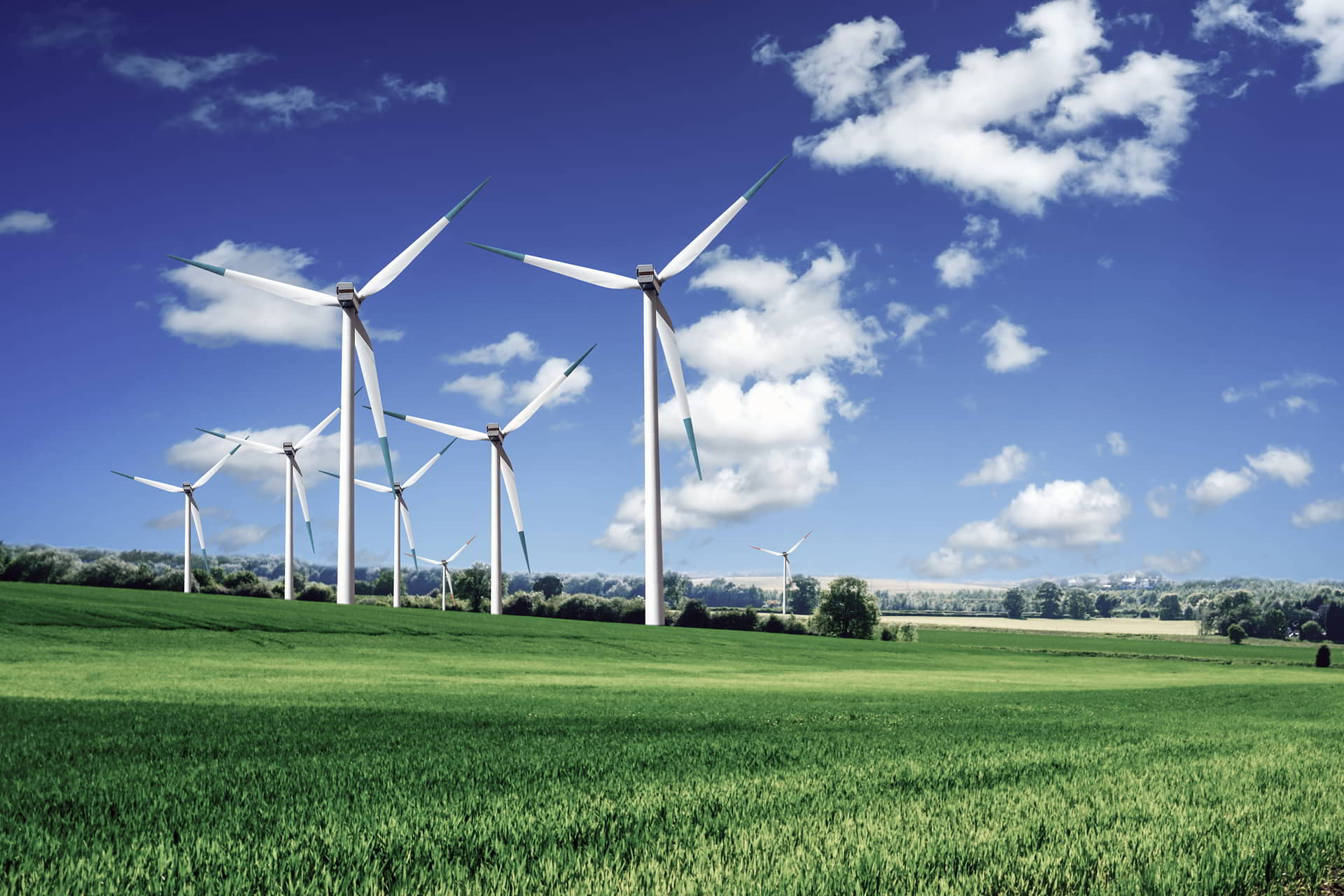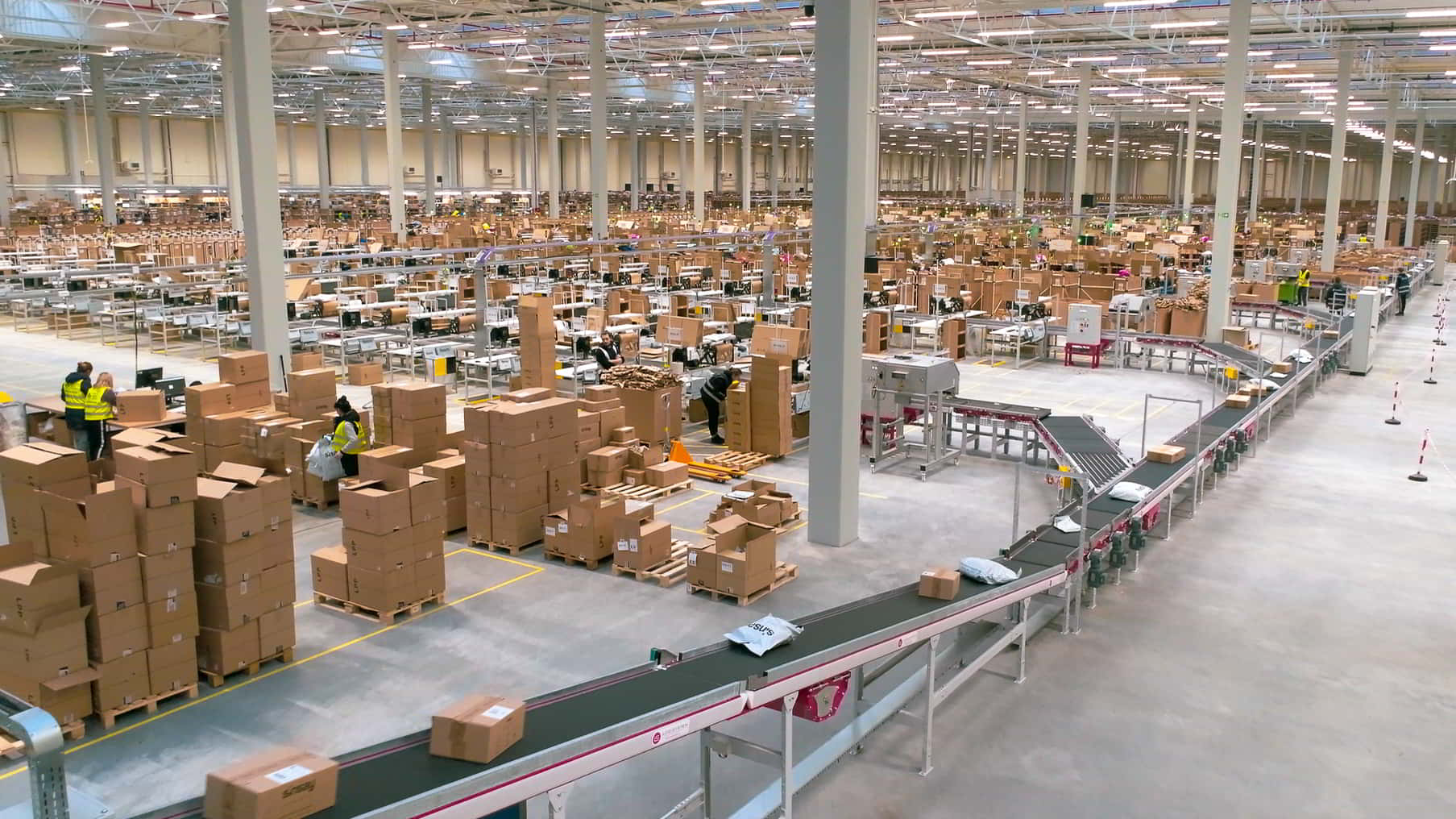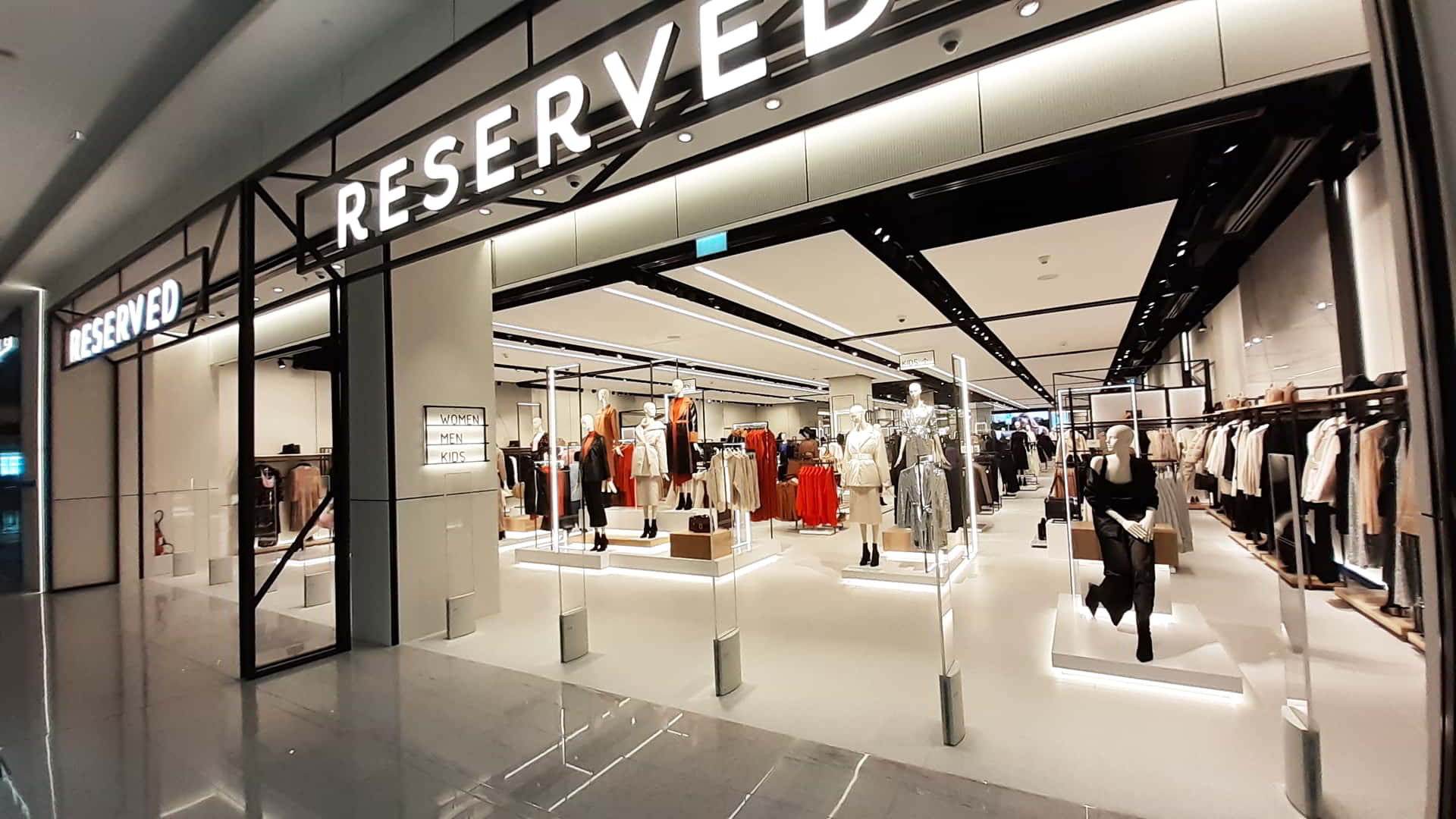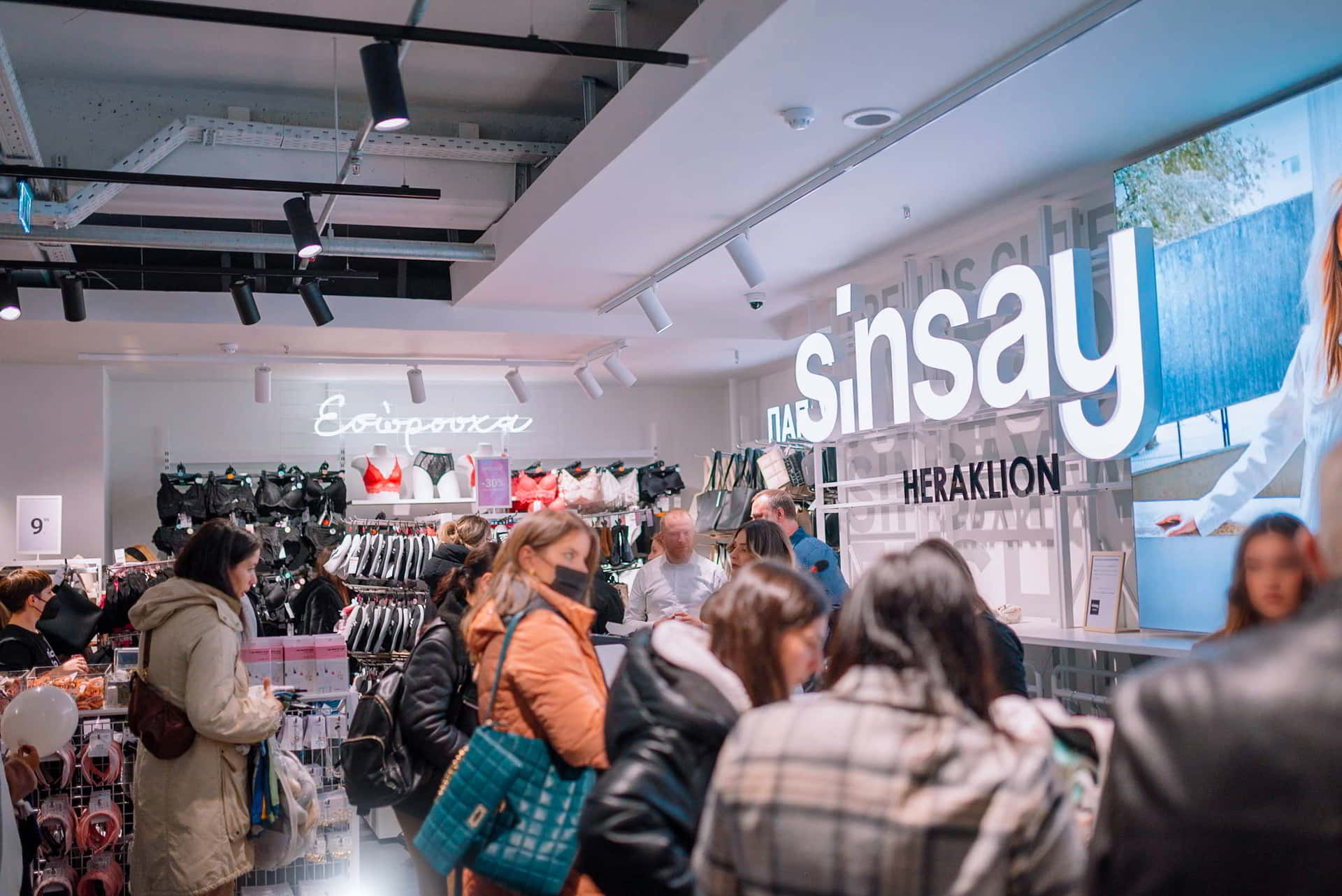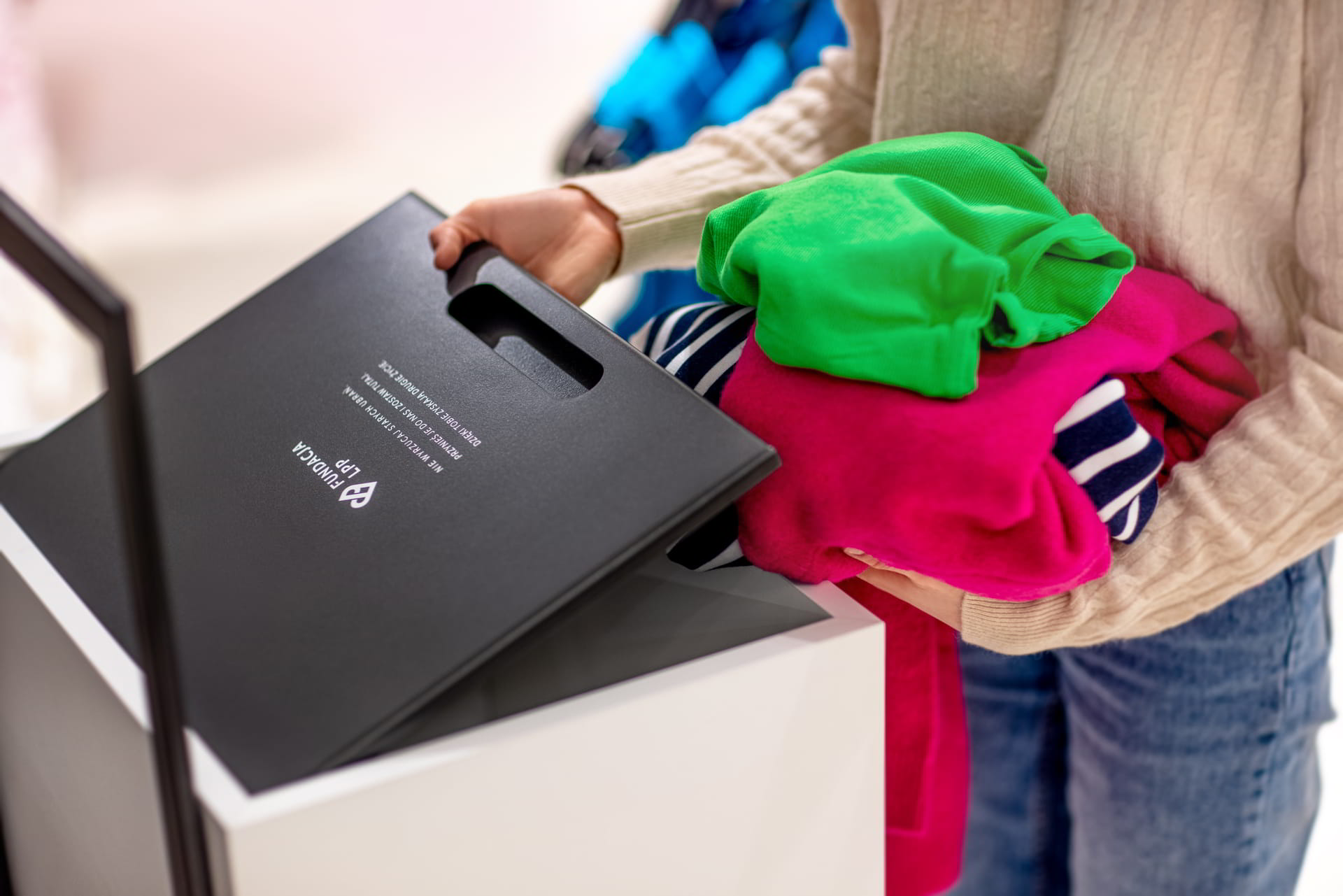LPP summarises financial results for 2022/2023
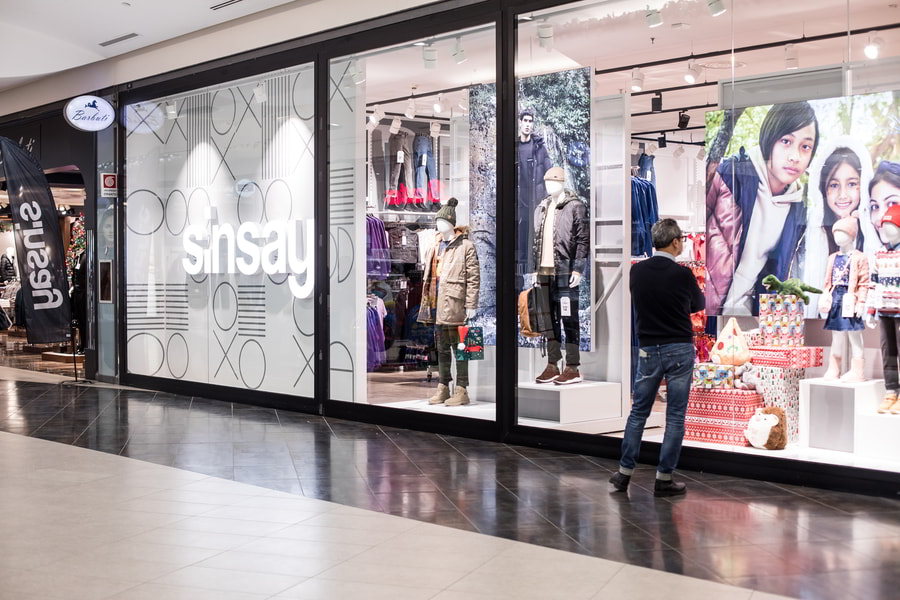
- The consistently implemented omnichannel sales strategy brought the company nearly PLN 16 bn in revenue last year, an increase of over 40% YoY.
- Double-digit revenue growth in each quarter of the completed financial year allowed the LPP Group to generate an annual profit of over PLN 1 bn and increase, by 8%, the year-on-year amount of taxes and duties which constituted a contribution to the national economy, to over PLN 1.7 bn.
- Thanks to hit collections across all brands, new store openings and entry into new markets, the company closed the fourth quarter with sales growth of 23% YoY.
- Despite a YoY decline in e-commerce growth, LPP brands generated almost PLN 4.4 bn in revenue in this channel last year, and the share of online sales accounted for more than 27% of the Group’s revenue.
- The company also summarised its sustainability activities. The past year was marked by efforts towards a circular economy, reducing emissions and expanding partnerships to support LPP in maintaining more environmentally friendly production standards.
The events in Ukraine and the termination of operations in Russia were one of the key determinants of the changes in LPP’s strategy implemented in 2022/2023 YoY, not without an impact on the company’s performance, especially in the first quarter of the year under review. The subsequent shift of the centre of gravity of business activities towards Southern and Western Europe triggered favourable sales trends in the following months. Despite a difficult start of the year, the Polish company’s well-matched collections and the subsequent very good sales performance of the brands in the last three quarters of 2022/2023 made it possible to close the year with a favourable balance sheet – nearly PLN 16 bn in revenue (an increase of 40.5% YoY) and a net profit of over PLN 1 bn. Thus, the amount of annual contributions of the Polish producer to the national budget in the form of duties and taxes increased by 8% YoY, to over PLN 1.7 bn.
– It was yet another year that confirmed our conviction that the future of the trade will be determined by how quickly and flexibly we are able to react to market changes. This is borne out by the sales results of our brands in the last quarters of this year, which indicate that we managed to foresee the sales potential in Southern and Western Europe in good time. This allowed us to offset, to a certain extent, the losses resulting from the reduction of operations in the East – comments Przemysław Lutkiewicz, vice-president of the management board, LPP. – A positive surprise of last year was the renewed interest of customers in visiting our physical stores. A few years ago, it was forecast that e-commerce would replace stationary retail. Against this background, at LPP we have been somewhat stubbornly focusing on both sales channels and, as it turns out – it was a good decision. Today, as a fully omnichannel organisation, we are able to grow independently of the changing balance of power between sales channels, while also following the voice of customers in terms of collections. In the last quarter, the more formal collections of Mohito and Reserved were very well-received. Men’s fashion from our flagship brand also proved very popular – adds Przemysław Lutkiewicz.
At the end of the fourth quarter, the product offer of LPP brands was available in 1962 traditional stores in 27 countries and in 34 online markets. The opening of the first Sinsay brand stores in Greece and Italy proved to be a sales success. Thanks to the successful collections of Mohito, whose sales increased by 34% YoY, and Reserved, as well as the strong opening of new e-stores, the Group generated revenue of over PLN 4 bn in the period, achieving sales growth of 23% YoY. Despite the lower growth rate of online sales as compared to the same period of the previous year, in the last quarter the brands generated more than one billion zlotys in e-commerce, and the share of this channel in the revenue of the entire Group amounted to 27%.
The slowdown in e-commerce growth observed in the fourth quarter is, on the one hand, the result of customers returning to physical stores and, on the other, a derivative of the cost discipline introduced, which included, among other things, a reduction in expenditure on performance marketing. As part of the rationalisation of its cost policy, the company also decided to make changes in the area of logistics and abandoned its outsourced warehouse for online sales in Stryków, moving operations to the Fulfillment Center in Jasionka near Rzeszów, which was launched at the beginning of 2023, and the Fulfillment Center in Pruszcz Gdański, opened a year earlier. Thanks to the measures taken so far, LPP has reduced its total SG&A costs per m2 by 8 percentage points compared to the previous year. An efficient cost policy allows the company to respond flexibly to the changing market environment and to support areas of key importance to its development, including mobile applications – constantly gaining popularity – as well as DynamicYield recommendation mechanisms based on artificial intelligence supporting online sales.
The positive reception of the LPP brands’ collections in Central and Southern Europe and the good performance of the online stores, including the e-store in Serbia launched in the third quarter, translated into a high share of foreign revenues, which accounted for 58% of the Group’s total revenue at the end of the year. In addition to Poland, which remains the company’s leading sales market, LPP brands achieved their best results in Romania, the Czech Republic and Ukraine, where 125 stores have resumed operations after last year’s restrictions. The high sales potential in Central and Southern Europe bodes well for the company’s plans for the current financial year, in which it intends to spend PLN 1.1 bn on investments, predominantly on developing its traditional network abroad. The bulk of the planned new physical stores are to be set up in Southern Europe, including Romania, Croatia, Bulgaria, and Serbia.
– In our plans for the current year, we are guided above all by reason; we want to open stores where we see the greatest sales potential and openness to our brands’ offer. Parallel to significant investments in the development of the stationary network and stable growth in the e-commerce channel, we continue to focus on cost discipline, which will allow us to maintain liquidity and balance our planned expenditure. We will also strive for better margins and increased levels of profitability by focusing on cost-effective marketing and logistics solutions – adds Przemysław Lutkiewicz.
Despite the events of the past year and the difficult geopolitical situation, including the termination of operations in one of its key markets, LPP has also not given up on fulfilling the objectives of its sustainability strategy. In its published non-financial activities report, the company highlights its efforts to reduce emissions and, following the title of the publication, its shift towards circular economy. In support of second circulation, the company has extended its second-hand clothing collection project to now cover all LPP brand stores in Poland. Going a step further, it has partnered with Use Waste – a Polish start-up – to research and develop technology for the full recycling of polyester. In turn, in partnership with the Sustainable Fashion Institute, it analysed the market for effective methods of recycling material blends. Focusing on better use of resources, LPP also reduced its use of plastics in packaging by 567 tonnes, meaning that the company has already reduced its use by 1,600 tonnes since 2017. The company also focused on defining decarbonisation targets, which have been reviewed by the Science Based Targets Initiative, a global partnership of international organisations supporting the private sector in the transition to a zero-carbon economy. The past year was marked by expanding partnerships to support LPP in maintaining environmentally friendly production standards. Currently, already all factories sewing jeans for Reserved brand carry out processes in line with the ZDHC standards.
However, the overarching goal of the past year in the area of sustainability was to consistently reduce the carbon footprint associated with the company’s operations. At the beginning of 2023, LPP began powering most of its office facilities and distribution centres in Pruszcz Gdański and Brześć Kujawski with wind energy. The company also undertook extensive measures in its stores, which enabled it to reduce electricity consumption there by 10% and to reduce emissions resulting from store operations per m2 of floor space by over 40%. In total, across all scopes, the Polish clothing manufacturer reduced its carbon footprint in the area of continuing operations by 8% YoY.
The full version of LPP’s integrated report for the 2022/23 financial year is available at: https://www.lpp.com/wp-content/uploads/2018/02/LPP-Sustainability-report-for-2022-2023-EN.pdf
_______________________________________________
LPP is a Polish family business and one of the fastest growing clothing companies in the region of Central and Eastern Europe. For 30 years, it has been successfully operating in Poland and abroad, offering its collections in such prestigious capitals as London, Helsinki or Tel Aviv. LPP manages five fashion brands: Reserved, Cropp, House, Mohito, and Sinsay, whose offer is available today in stationary and online stores in nearly 40 markets worldwide. The company has a chain of over 1800 stores with the total area of 1.5 million m2 and distributes clothing and accessories to three continents every year. LPP also plays an important role as it employs over 24 thousand people in its offices and sales structures in Poland, Europe, Asia, and Africa. The company is listed on the Warsaw Stock Exchange in the WIG20 index and belongs to the prestigious MSCI Poland index.


